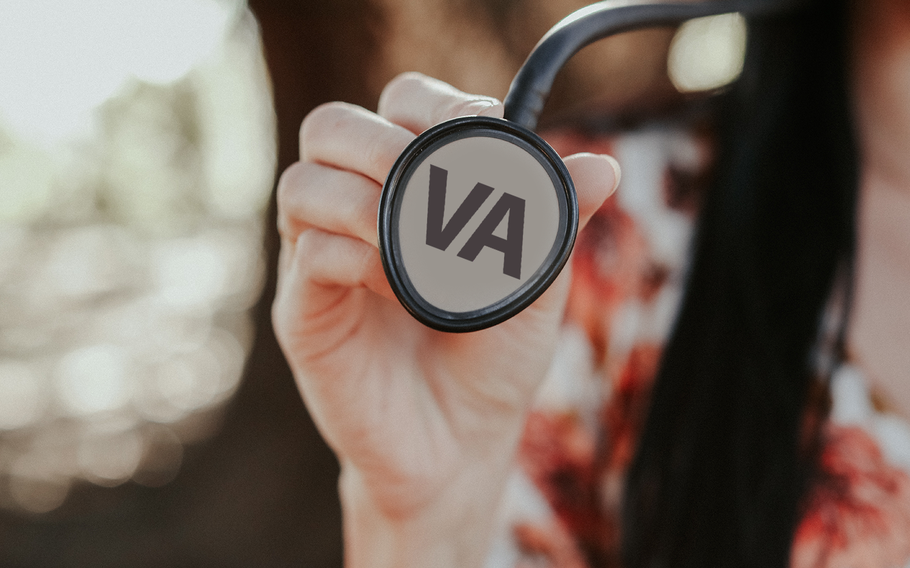
(Unsplash)
WASHINGTON — President Donald Trump’s budget request for fiscal 2020, released Monday, includes a boost for the Department of Veterans Affairs — one of the few domestic agencies he designated for an increase in spending.
The request for the VA was $220 billion — up 9.5 percent from fiscal 2019, when the agency’s budget surpassed $200 billion for the first time.
“The budget supports the most significant transformation of VA since its inception, positioning the department as the premier provider for veterans’ services and benefits,” VA Secretary Robert Wilkie said in a statement. “This is a significant increase in VA funding and demonstrates the administration’s commitment to supporting our Veterans.”
Trump’s proposal, titled “Budget for a Better America,” totals $4.7 trillion. In it, he suggested budget cuts for other agencies, such as the Environmental Protection Agency and departments of state, education, transportation, agriculture and interior. The request is likely to face significant challenge in Congress.
The budget plan is Trump’s third — and the third time he’s suggested an increase for the VA, continuing a pattern set by previous administrations. The agency’s budget has increased consistently since the beginning of the Iraq and Afghanistan wars. In 2009, it operated on a $90 billion budget.
Under Trump’s request, $80 billion in fiscal 2020 would be set aside for VA medical care.
Nearly $9 billion was proposed to implement the VA Mission Act, major reform legislation that Congress approved last year to expand veterans’ access to private doctors.
As part of the Mission Act, the VA drafted rules that would allow veterans to receive private treatment if they must drive more than 30 minutes to reach their VA mental health or primary care providers or wait longer than 20 days for an appointment. Based on those changes, Trump’s budget calls for an extra $2.9 billion for private care in fiscal 2020.
If the cost estimates for private care are wrong, the VA must gain approval from Congress to transfer money from other parts of the agency’s budget, a senior VA official said Monday.
Trump’s budget plan includes $1.6 billion to go toward a multibillion-dollar, multiyear project to overhaul the agency’s electronic medical records and allow for seamless access between the VA and Defense Department.
Another $1.6 billion would fund construction projects, including $410 million to build a new hospital in Louisville, Ky., and $150 million to finish a medical center in Manhattan, N.Y.
The plan puts more money toward the Office of Accountability and Whistleblower Protection, which was created in 2017 to make the VA more aggressive in finding and removing bad workers. The proposal calls for $22 million for the office in fiscal 2020, a 25 percent increase from the current fiscal year.
The VA was blasted this year for spending only a small fraction of the money Congress allotted for suicide prevention outreach. Trump requested an increase for fiscal 2020 of more than $15 million, giving the VA about $222 million to spend.
The budget also proposes an increase to the VA workforce. It would support nearly 343,000 full-time employees in fiscal 2020, up by 13,000 from this year. The request comes as the department has struggled to fill jobs, with more than 49,000 vacancies reported nationwide in February.
Veterans groups were expected Monday to receive a briefing on the budget proposal from VA officials. Some groups are likely to oppose a move by Trump’s administration to round down veterans’ cost-of-living adjustments to all veterans who receive disability compensation.
The practice was standard until 2013. Reinstating the round-down policy would save $36 million in fiscal 2020, according to estimates in Trump’s plan.
Another cost-saving proposal would cap student veterans’ Post-9/11 GI Bill benefits for flight training — a cut Trump’s administration has been trying to impose the last two years. The cap would save $28 billion in fiscal 2020, the plan states.
Congress is expected to begin discussing the budget proposal this week. Sen. Johnny Isakson, R-Ga., the chairman of the Senate Veterans’ Affairs Committee, said Wilkie would testify about the budget before the committee later this month.
Isakson and Rep. Phil Roe, R-Tenn., the ranking Republican on the House Committee on Veterans’ Affairs, praised the VA portion of Trump’s budget plan.
“President Trump continues to prioritize funding for our veterans, even in a tight fiscal climate,” Roe said in a statement. "I have no doubt that Congress will do the same.”
Rep. Mark Takano, D-Calif., the chairman of the House VA committee, said the plan didn't include enough funding for medical research or infrastructure. He also argued the proposed reductions to other domestic agencies would affect veterans.
"As we learn more about the implications of this budget, one thing is clear: we need to do more to ensure our veterans get the care they earned and deserve and we must invest in domestic programs that support veterans and their families," Takano said in a statement. "This proposed budget puts that care and support at risk."
wentling.nikki@stripes.com Twitter: @nikkiwentling